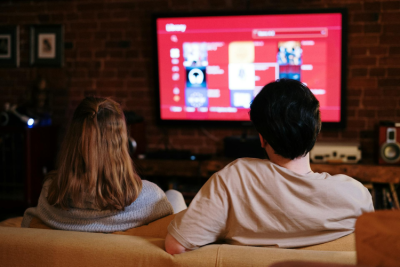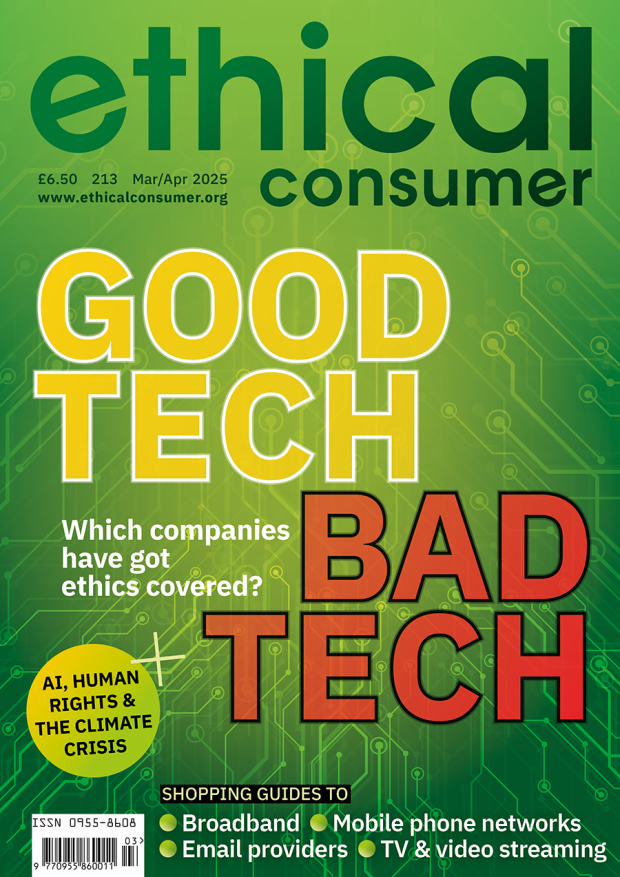Find an ethical and eco friendly streaming TV and video service
The way we watch TV has changed. The arrival of video-on-demand and video sharing platforms has diversified our viewing habits and, in 2023, only about 40% of what we watched was live TV. Many of us catch up on shows we’ve missed through apps like BBC iPlayer. And more than 68% of UK homes now have subscriptions to streaming services, according to Ofcom.
Netflix and Amazon Prime have the most subscribers with 58% and 45% of UK households respectively, followed by Disney+. Video sharing platforms such as YouTube are also taking up more of our viewing time, particularly amongst younger age groups.
Broadcast TV viewing (watching scheduled TV channels live or on catchup) is declining, particularly amongst the young, with a quarter of individuals and half of 16-24-year-olds not watching any broadcast TV. However, the broadcasters still top the list of the most watched programmes: in 2023, nine of the top ten shows were on BBC1 and the remaining one was on ITV.
Who’s in the guide?
To reflect the range in our viewing habits, this guide includes the newer streaming companies that only offer video-on-demand (Netflix, Disney+, etc.) and also the older TV companies that still offer scheduled viewing but now have their own well-developed catch-up platforms (such as BBC and ITV.) We’ve also included YouTube (owned by Google).
The companies all offer a wide range of content from films to TV shows and box sets. We haven’t included those that specialise in things like films or sport.
December 2025: Netflix has announced its intention to buy Discovery. If and when this takes place we will update the company ownership details in our ratings database.
You can also get TV bundled with your broadband provider. For these companies – EE, BT, Virgin Media, and TalkTalk – see the broadband guide.
Disappointingly, most brands in this guide failed to score more than 15 points (out of 100). Read on to find out how the companies performed.





